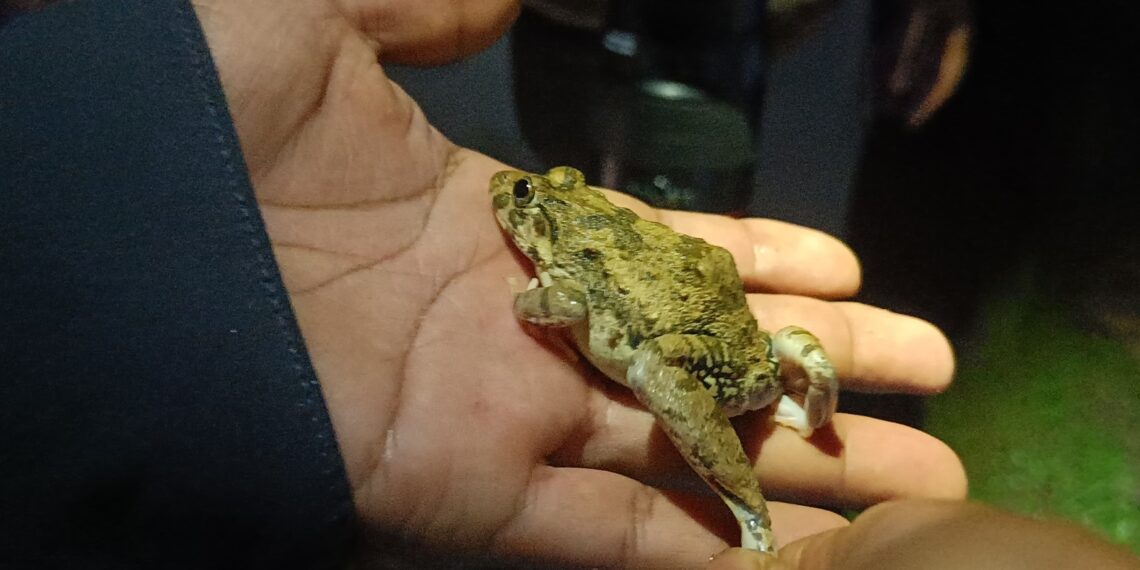Karbi Anglong (Assam): A special Frog Watch and Field Photography session was held on July 12 in Phumen Engti village of Assam’s Karbi Anglong district, drawing attention to the region’s rich diversity of amphibians and reptiles.
The event was organised by leading biodiversity conservation organisation Aaranyak in collaboration with local community members and researchers.
The guided walk through a section of forested terrain near the village was led by herpetologist Dr. Jayanta Kumar Roy, alongside biodiversity champions from the region, Mongal Rongphar and Bidaram Tokbi.
Participants included a PhD scholar from Royal Global University, students from Debraj Roy College in Golaghat, an IIT Gandhinagar faculty member, and representatives from Digboi College — reflecting a wide spectrum of academic and conservation interests.
During the trail, attendees observed and documented various species of amphibians and reptiles, including the Indian Skipper Frog (Euphlyctis cyanophlyctis), Red-eyed Frog (Leptobrachium smithi), Assamese Cascade Frog (Amolops assamensis), Asian Common Toad (Duttaphrynus melanostictus), multiple cricket frog species (Minervarya teraiensis, Minervarya pierrei), along with skinks, garden lizards, and bent-toed geckos.
The participants engaged in hands-on learning through discussions on species behaviour, habitat identification, and ecological interactions — all while navigating the natural forest under low evening light.
A brief pause during the walk served not only as a refreshment break but also as a platform for dialogue on amphibian conservation.
The gathering was enriched by the narration of a traditional Karbi folk tale, offering a cultural dimension to the ecological experience and reinforcing the significance of indigenous knowledge in conservation efforts.
ALSO READ: Arunachal records strong economic surge with 166% GSDP growth over decade: CM
Organisers noted that such field-based experiences play a key role in raising awareness and building a deeper appreciation for biodiversity through collaborative learning approaches.
The initiative is part of Aaranyak’s larger conservation efforts in the Kaziranga-Karbi Anglong and Manas landscapes, supported by the IUCN-KfW and the U.S. Fish and Wildlife Service.
Aaranyak continues to work closely with indigenous communities in these areas to promote sustainable livelihoods, conservation education, and ecosystem protection.















